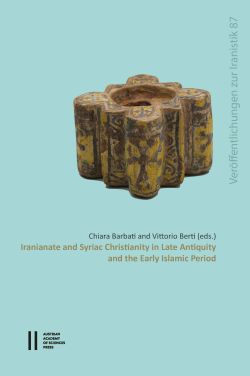
Iranianate and Syriac Christianity in Late Antiquity and Early Islamic Period, pp. 33-52, 2021/12/21
The Sasanian Empire, quite from the beginning, developed a strong interrelation between the politics and religion. From the last quarter of the 3rd century onwards, politics and religion grew into a ʻsiblings statusʼ. Zoroastrian priests gained a dominant role in political decision making. Thus, scopes of actions of religious minorities – Christians and others – were gradually limited their influence on norms and ethics in society declined.For the paper, some questions of research should be investigated and (hopefully) answered: How dependent were Christians of norms and ethics of the Zoroastrian priests conflicting with their own religion norms? This question can be focused on a macro-, meso- and micro-level. (1) Conflicting norms and their impact on social action will be investigated on the macro-level: From the point of view of the dominating Zoroastrian policy, Christian norms and ethics were closely related to the East Roman Church and Empire. Opposite to this, Christians in the Sasanian Empire perceived themselves as part of the Empire. (2) On the meso-level, the situation grows even more complex. Scopes of agency of the Christian minorities that differed in local and temporal perspectives will be in the focus on this level. (3) Since the 5th century, individuals from Christian background were able to launch careers at the Sasanian court, while those Christians having converted from Zoro-astrianism sometimes were severely persecuted. Thus intersections, contacts and dependency varied on a sliding scale.